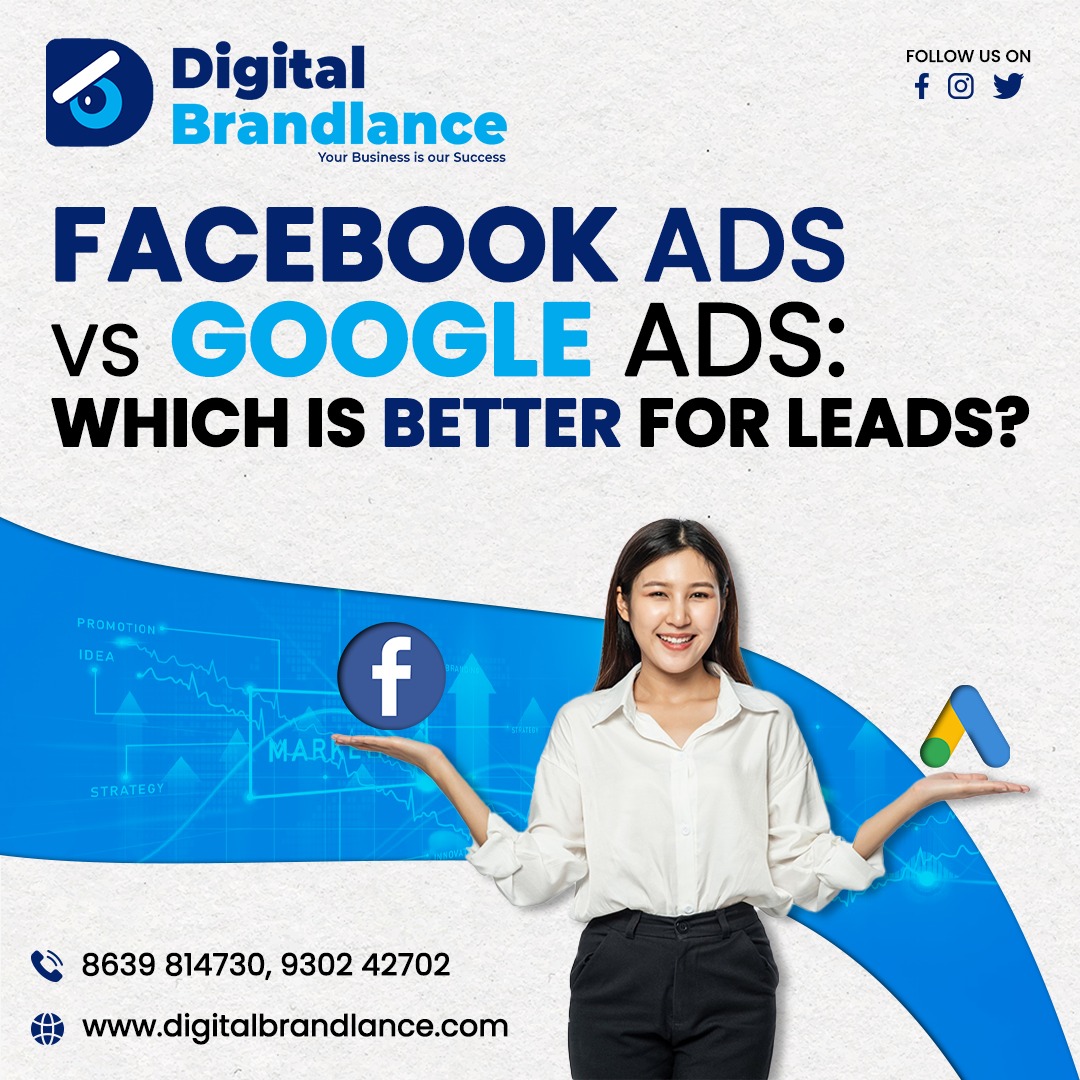
Facebook Ads is a paid social ad platform with extensive audience targeting options, while Google Ads is a paid ad search platform relying primarily on Google users’ keyword searches.
Although the two platforms are often positioned as competitors, nothing could be further from the truth in a practical sense.
Many companies are combining the benefits of Google Ads and Facebook Ads to enhance visibility, boost leads and sales, and attract new clients.
By using various tactics that complement the features of each platform, they are experiencing impressive returns on their advertising investments.
In this guide, we, Digital Brandlance examine what sets Google Ads and Facebook Ads apart, how the two ad platforms work, and why you should consider using both as part of your wider digital marketing strategy.
GOOGLE ADS: PAID SEARCH
The biggest and most well-known PPC advertising platform in the world is Google Ads, formerly known as Google AdWords. Due to its widespread usage, “paid search” now refers to it as well.
FACEBOOK ADS: PAID SOCIAL
Facebook Ads is a prime example of what is known as “paid social,” or the practice of advertising on social networks. With the highest number of monthly active users (or MAUs) of any social network in the world,
Facebook has become a highly competitive and potentially lucrative element of many businesses’ digital advertising strategies.
The strengths & advantages of Google Ads :
As the world’s most popular and widely used search engine, Google is considered the de facto leader in online advertising.
Google offers advertisers access to an unprecedented and unequaled potential audience of users who are actively looking for goods and services.
1. An immense audience :
One of the main advantages of using Google as an advertising platform is its immense reach.
As Google becomes increasingly sophisticated in part to its growing reliance on its proprietary artificial intelligence and machine learning technology.
2. A level playing field :
One of the biggest misconceptions among those new to PPC is that whoever has the largest advertising budget somehow automatically “wins” at Google ads.
Fortunately, nothing could be farther from the truth as Google Ads focuses primarily on the quality and relevance of ads, not how much advertisers spend.
3. A wide range of ad formats :
When AdWords first launched in 2000 (with a grand total of just 350 advertisers), the text-based ads that Google served alongside its search results were rudimentary, to say the least but they did contain many of the same elements that can be seen in today’s ads.
THE STRENGTHS & ADVANTAGES OF FACEBOOK ADS :
Compared to Google Ads, Facebook ads is the scrappy newcomer, but in fact, Facebook has been refining and improving its advertising solution for several years.
Today, Facebook Ads is a pioneer in the sphere of paid social and has become a central part of many businesses’ digital marketing strategies.
1.Unparalleled audience granularity
Similar to Google, Facebook boasts a truly vast global audience. With more than 1.55 BILLION monthly active users more than one-fifth of the entire world’s population.
Facebook has no rival when it comes to the enormity of its audience. However, rather than exposing advertisers and their messaging to this vast audience, the true strength of Facebook’s immense audience lies in the potential granularity with which advertisers can target Facebook’s users.
An inherently visual platform
Facebook ads are powerfully visual. The very best Facebook ads blend in seamlessly with the videos, images, and other visual content in users’ News Feeds,
And this enables advertisers to leverage not only the strongly persuasive qualities of visual ads but to do so in a way that conveys the aspirational messaging that makes high-quality ads so compelling.
Incredible ROI :
The intricacy of Facebook Ads’ targeting possibilities, as well as the resources available to create stunning, compelling ads, frequently astound businesses and marketers testing the platform.
The potential return on investment that Facebook advertising offers, as well as how far resourceful advertisers can stretch a small ad spend on the network, are aspects of Facebook Ads that frequently catch newbies off guard.
Google Ads vs Facebook ads: Which should you be using
“It’s still a work in progress, and they’re still improving how the platform works for advertisers.”
Both Google Ads and Facebook Ads are incredibly powerful advertising platforms that cater to virtually every type of business.
When evaluating each solution’s strengths and potential applications, it’s also apparent that the two platforms should be viewed in a complementary, rather than adversarial, way.
Some people insist on comparing Facebook Ads to the Google Display Network, and while the two platforms share some similarities, the ways in which the two platforms have evolved independently of one another shows that Google and Facebook should be used in concert, not in opposition.
“It’s still a work in progress, and they’re still improving how the platform works for advertisers.”
Harnessing the power of both paid search and paid social is a remarkably effective advertising strategy. However, it necessitates a dual advertising strategy that aligns with the strengths of each respective platform.
Although marketing messaging can – and arguably should – remain consistent across both Google and Facebook Ads, it’s vital to understand how best to use each platform for maximum ROI and greater business growth.
What we do is complicated. Why we’re the best is not. industry-leading results, and a 96% retention rate – that’s the Digital Brandlance difference. Satisfied clients and transparent relationships have built us an outstanding reputation.

Check Availability!